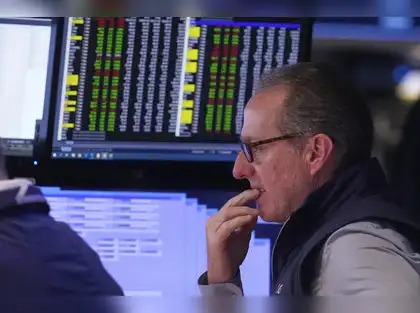A wave of positive economic data, including robust sales from AI leader Nvidia and retail giant Walmart, has failed to halt a sharp sell-off in global markets, as deepening fears of an AI bubble and persistent inflation worries overwhelm investor sentiment.
Despite blockbuster earnings from Nvidia that briefly lifted spirits, US markets reversed course on Thursday. The S&P 500 fell 1.5%, the Dow Jones dropped 0.8%, and the tech-heavy Nasdaq lost over 2%. The negative trend continued in Asia on Friday, with Japan’s Nikkei 225 down more than 2.5% and South Korea’s Kospi plunging around 4%.
“The reaction is noteworthy, because what should have happened, didn’t happen,” said James Stanley, a senior analyst at StoneX, referring to the market’s failure to sustain an early rally. “You’ve got to ask what’s happening under the surface.”
The downturn highlights a significant shift in market psychology. Even as Nvidia CEO Jensen Huang dismissed overvaluation concerns, investors appear to be heeding warnings from other tech leaders like Alphabet’s Sundar Pichai, who recently cautioned about “irrationality” in the AI boom. The sell-off has hit AI-adjacent assets hard, with Bitcoin also falling below $90,000 amid the tech-driven anxiety.
Compounding the issue is ongoing uncertainty about the Federal Reserve’s interest rate path. While a strong September jobs report showed resilient hiring, a concurrent rise in the unemployment rate created a mixed picture that offered little clarity on the Fed’s next move.
“We’re in a market that’s priced at perfection,” said Eric Teal, chief investment officer at Comerica Bank. “A lot of those things, over the past three weeks, have been called into question.”
With the S&P 500 on track for its worst month since March, analysts at Oxford Economics suggest the current downturn may represent a “healthy correction” rather than the end of the AI investment boom. However, with key inflation data still delayed, the opacity that Stanley noted continues to fuel investor trepidation and market volatility.
By James Kisoo



















